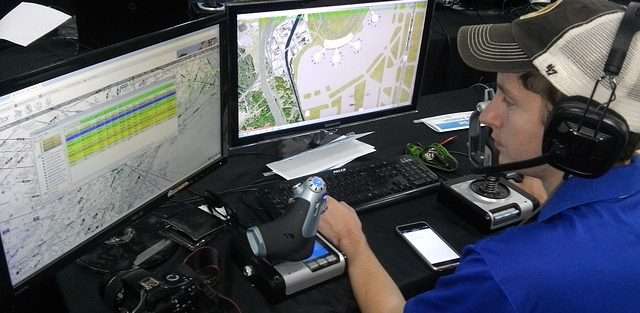Air Traffic Controller

An air traffic controller is a person or persons responsible for the safe and orderly flow of large and small aircraft flights in the global airspace. These personnel are generally stationed in traffic control towers and centres on the ground. They monitor things like:
- Aircraft speed
- The position of aircraft
- The altitude at which aircraft are flying at
They’re also responsible for giving pilots directions by radio.
A Controller’s Skill Set
Before an aviation enthusiast can hold the title of air traffic controller, there are certain requirements that must be met. Although these vary by country, the requirements typically include:
- Extensive education
- Completing an Federal Aviation Administration (FAA) training course
- Achieving a qualifying score on the FAA test
- Passing various aptitude tests
- Passing both medical and background checks
Besides the previous requirements, controllers carry an incredibly large responsibility. Having the mental capacity to deal with a high-stress career is a must. Air traffic controllers are also great at multi-tasking, are well organized, able to make important decisions on the fly, great with mathematics, and work well (or better) under stress. They must also possess strong communication skills and be able to concentrate in an environment with lots of background noise and moving bodies. All of these skills ensure large and small aircraft flights operate safely, orderly, and expeditiously.
An air traffic controller is a person or persons responsible for the safe and orderly flow of large and small aircraft flights in the global airspace. These personnel are generally stationed in traffic control towers and centres on the ground. They monitor things like:
- Aircraft speed
- The position of aircraft
- The altitude at which aircraft are flying at
They’re also responsible for giving pilots directions by radio.
A Controller’s Skill Set
Before an aviation enthusiast can hold the title of air traffic controller, there are certain requirements that must be met. Although these vary by country, the requirements typically include:
- Extensive education
- Completing an Federal Aviation Administration (FAA) training course
- Achieving a qualifying score on the FAA test
- Passing various aptitude tests
- Passing both medical and background checks
Besides the previous requirements, controllers carry an incredibly large responsibility. Having the mental capacity to deal with a high-stress career is a must. Air traffic controllers are also great at multi-tasking, are well organized, able to make important decisions on the fly, great with mathematics, and work well (or better) under stress. They must also possess strong communication skills and be able to concentrate in an environment with lots of background noise and moving bodies. All of these skills ensure large and small aircraft flights operate safely, orderly, and expeditiously.








